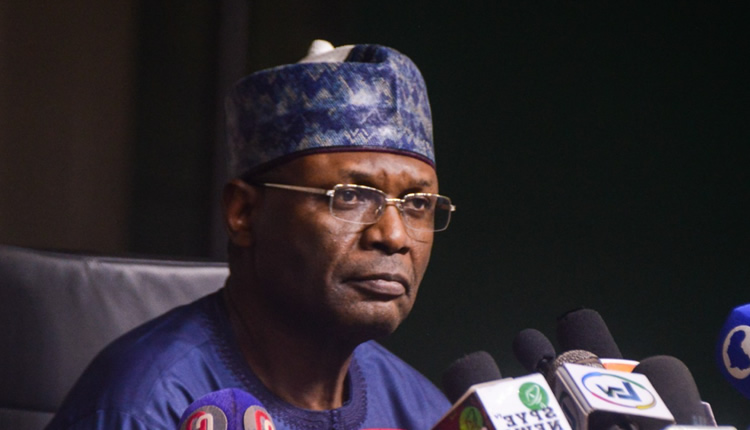The Unchecked Menace of Premature Campaigning in Nigeria
The Nigerian political landscape is increasingly characterized by a pervasive disregard for electoral laws, particularly concerning the timing of political campaigns. Professor Mahmood Yakubu, the Chairman of the Independent National Electoral Commission (INEC), has voiced deep concerns over this growing trend of premature campaigning, labeling it a significant threat to the integrity of the electoral process and the very foundation of democratic governance. This practice, which sees political actors engaging in overt campaign activities long before the officially sanctioned period, undermines the level playing field envisioned by the Electoral Act and distorts the focus of governance. The issue is particularly acute in the run-up to off-cycle gubernatorial elections, the Federal Capital Territory Area Council elections, and, notably, the 2027 general election, which is still years away.
The crux of the problem lies in the blatant violation of Section 94(1) of the Electoral Act 2022, which explicitly prohibits the commencement of campaigns earlier than 150 days before polling day and mandates the cessation of all campaign activities 24 hours prior to voting. Despite this clear legal framework, political parties, candidates, and their supporters appear to exist in a perpetual state of electioneering, often disregarding the INEC’s timetable and schedule of activities. This premature politicking manifests in various forms, including outdoor advertising, media campaigns, and even full-fledged rallies, all designed to promote specific political parties and candidates.
The consequences of this disregard for electoral law are far-reaching. One of the most significant implications is the crippling effect it has on INEC’s ability to monitor and regulate campaign finance. When political actors engage in early campaigning, they expend vast sums of money outside the official campaign period, making it virtually impossible for the Commission to track these expenditures effectively. This lack of transparency not only creates an uneven playing field but also raises concerns about the potential influence of money in politics, potentially compromising the integrity of the entire electoral process. It allows wealthy individuals and groups to gain an unfair advantage, potentially swaying public opinion and undermining the principle of free and fair elections.
A major obstacle to addressing this issue lies within the legal framework itself. While the Electoral Act imposes a fine of N500,000 for campaigning within 24 hours of an election, it provides no sanctions for campaigns conducted earlier than 150 days before the polls. This legal loophole effectively ties INEC’s hands, rendering the Commission powerless to curb the rampant practice of early campaigning. Recognizing this critical gap in the legislation, Professor Yakubu has emphasized the urgent need for amendments to empower INEC to enforce the law effectively. He has called for a “deep reflection” on the issue and has urged the National Assembly, currently reviewing the electoral laws, to consider actionable recommendations from experts to address this legal lacuna.
The pervasiveness of early campaigning is not a new phenomenon in Nigeria, but its increasing prevalence in recent election cycles necessitates a more robust response. The failure of regulatory bodies, including INEC, to effectively address this issue within the existing legal framework underscores the need for legislative reform. Professor Yakubu has engaged with the leadership of the Senate and House of Representatives Committees on Electoral Matters, expressing confidence that they will prioritize the need for stronger legal provisions to deter premature campaigning. This collaboration with the legislature is crucial for strengthening the electoral laws and empowering INEC to enforce them effectively.
Adding to the complexity of this issue is the subtle, yet impactful ways in which political actors circumvent the spirit of the law, even while technically adhering to the letter. While outright rallies and overt advertising may be avoided during the restricted period, politicians often engage in activities disguised as constituency projects or empowerment initiatives. These events, while ostensibly serving the public, often become thinly veiled campaign platforms, blurring the lines between governance and electioneering. This blurring of lines makes it difficult for regulatory bodies to enforce campaign regulations effectively, as it becomes challenging to distinguish genuine public service from veiled political campaigning. The lack of clear definitions and criteria for identifying such disguised campaigning further complicates the enforcement process. This situation highlights the need for stricter guidelines and clearer definitions within the electoral laws to address these nuanced forms of premature campaigning.
The current situation underscores the need for collaborative efforts among various stakeholders to address this challenge. INEC has engaged with other regulatory agencies, including the National Broadcasting Commission, the Advertising Regulatory Council of Nigeria, and the Broadcasting Organisation of Nigeria, to explore collaborative solutions. These inter-agency discussions are vital for developing a comprehensive and coordinated approach to regulating political advertising and media coverage, ensuring compliance with electoral laws, and fostering a level playing field for all contestants. Ultimately, tackling the issue of premature campaigning requires a multifaceted approach that includes legislative reform, robust enforcement by regulatory bodies, and a commitment by political actors to uphold the spirit and letter of the electoral laws. Only through such collective action can Nigeria hope to strengthen its democratic processes and ensure free, fair, and credible elections.














